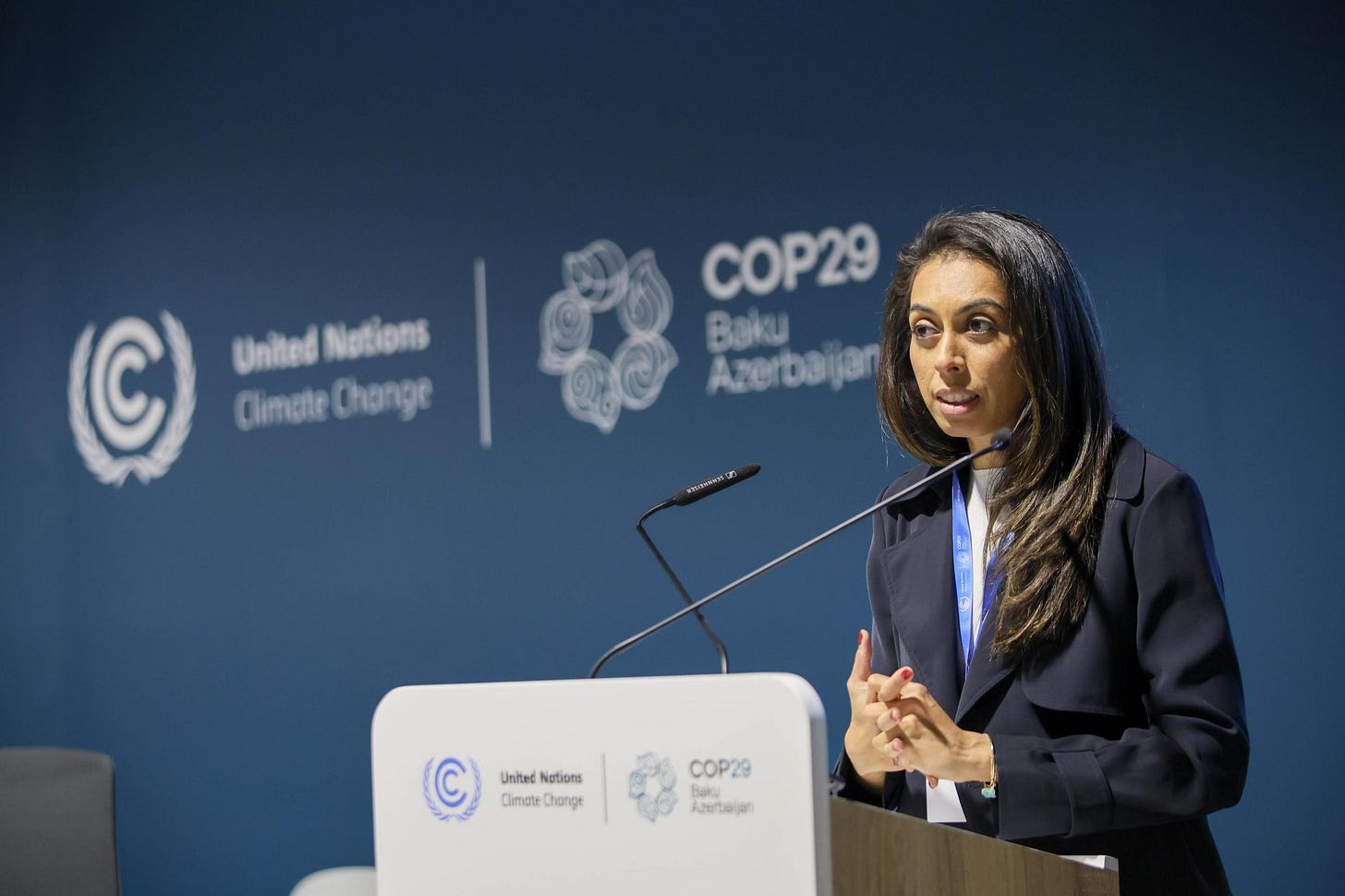What Small Islands Need From COP30
Chair of alliance representing 39 small island nations says they will not join a consensus in Belem that co-signs their destruction.

By Ambassador Ilana V. Seid
The climate crisis has reached a defining moment. New scientific findings show that the world is likely to reach or exceed 1.5 degrees Celsius of warming within the next five or six years. This is not a distant risk. It is a current and worsening reality, especially for small island developing states.
For our nations, climate change is not a future problem. It is already disrupting our economies, our societies, and our way of life. Warming of 1.5C is not safe for us. The latest science warns of irreversible damage to ice sheets in Greenland and Antarctica, with devastating consequences for sea level rise. And yet, support from the international community remains far below what is needed.
Between 2016 and 2020, all 39 small island developing states combined received just 1.5 billion dollars in climate finance. In the same period, we paid out 18 times more in debt service. From 2010 to 2019, we experienced over 100 billion dollars in losses from climate impacts. These figures expose a deep failure of the global system. A failure to act on promises. A failure to protect the vulnerable. A failure to match words with meaningful support.
The message from the 39 states that make up the Alliance of Small Island States (AOSIS) is clear. Without a serious course correction at COP30, the world is on track to breach its obligations to small island states. We are expected to balance participation in negotiations that will determine our future, while at the same time face the worst impacts with the least resources.
Science must be the foundation of decision making. But science is under attack and underused. COP30 must reflect the latest findings in its approach and embed a real sense of urgency throughout the process. The world’s top climate scientists at the IPCC have made it clear that global emissions must be halved by 2030 and reach net zero by mid-century to stay within 1.5 degrees. We are now halfway to that 2030 deadline. The 2035 climate plans that all countries are mandated to deliver - known as NDCs - must be submitted by countries before September and must reflect the scale of effort required. If they do not, we are morally and ethically bound to take action to close the ambition gap. At COP30, AOSIS will not join a consensus that signs away our future and we will insist on an outcome that honours the promises of the Paris Agreement.
Implementation must accelerate. We welcome the renewed focus on delivering existing commitments. But delivery will only happen if countries like ours are supported to implement our national plans, adaptation strategies, and reporting requirements. We cannot close the ambition gap without the tools to act.
Adaptation must also be a priority. As the climate crisis deepens, adaptation is becoming more expensive and more difficult. Some options are disappearing entirely. For small island developing states, the limits to adaptation are no longer theoretical. They are real. The framework agreed for the Global Goal on Adaptation must now be operationalised and backed by serious political will.
The bridge from ambition to action is finance.
Without finance at the scale and speed required, ambition is empty. Finance must be accessible, adequate, affordable and fast. For small island states, this means grant-based, concessional finance that we can actually access. The current system is too complex, too slow, and too unreliable.
The latest science confirms that we will experience more loss and damage in shorter timeframes. This must be a standing item on the COP agenda and a continued political priority. The Loss and Damage Fund must be replenished. Delays are unacceptable.
We expect this COP to deliver outcomes that are consistent with the science, that reflect the lived realities of vulnerable states, and that make good on long-standing commitments.
There is still time to get this right. But only if leaders act now with clarity and courage. We urge the world to treat the upcoming COP as the ground zero of the climate crisis. A place where we collectively choose a different future. One that is defined not by promises but by action.
Ambassador Ilana V. Seidis is Chair of the Alliance of Small Island States (AOSIS) and Permanent Representative of Palau to the United Nations


